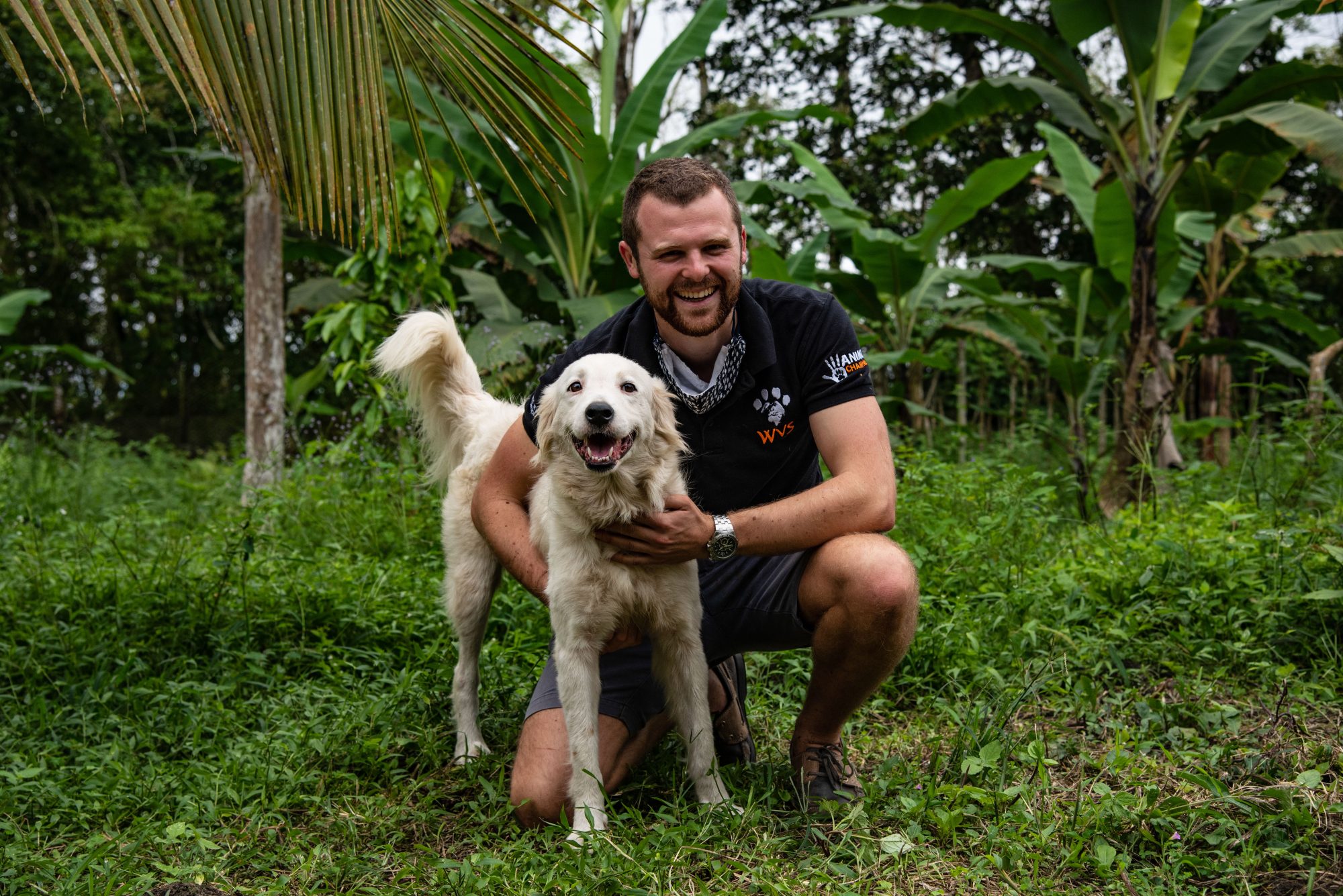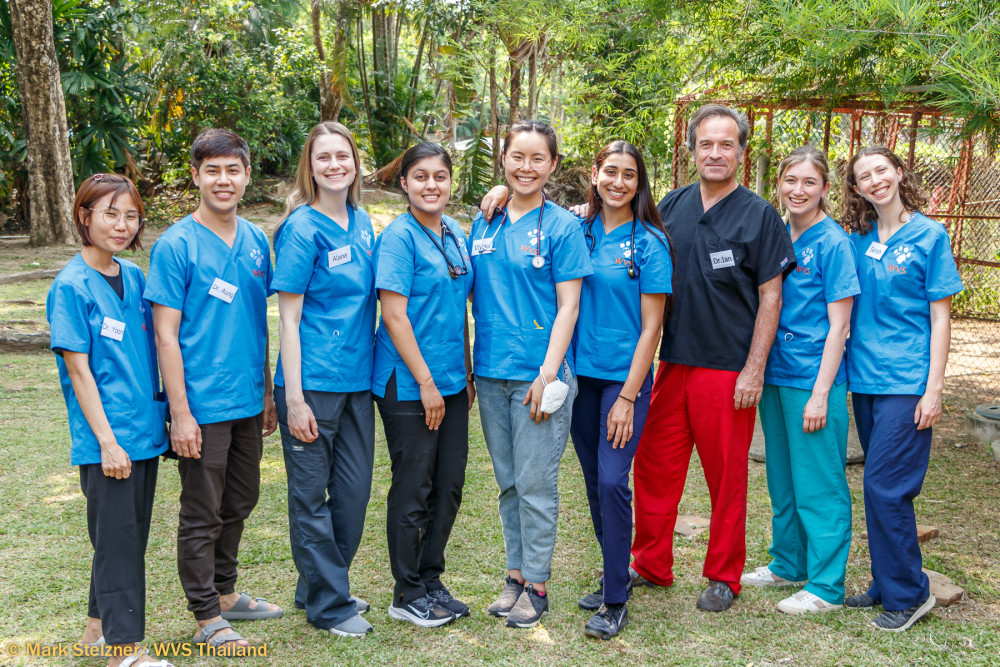Graduating vet school can be an incredibly exciting yet overwhelming time. Keep reading for advice from Vet and WVS International Veterinary Manager, Dr Ben Howitt.
Author: Dr Ben Howitt

As we were talking amongst ourselves, with all our friends and colleagues at graduation in 2016, there was an air of mixed emotion. It was a moment all of us had spent five years working towards; every summer, every holiday, from one placement to another, grinding through clinics, farms, and stables.
Some graduates demonstrated their fearless confidence as they advertised their job offer that they received six months earlier. Then you had those with a nervous excitability, thrilled by this achievement, but would get caught by a sudden worrisome thought.
This transition from student to professional was one of the most exciting periods of my life, yet it also taught me some of the hardest lessons. So now seven years down the line, I have been given the opportunity to jot down some key points of advice to our new colleagues:
1. Mistakes will be made, so ask questions
You need to accept that you will not always get it right, and in some cases make errors in clinical judgement or miss clear evidence of case progression. But the real error is not in what decision you necessarily make, but failing to ask for second or even third opinions from your colleagues. If you feel uneasy about a case, even if you feel that it has an obvious answer, or you have made an obvious mistake; it is your responsibility to voice it. Your patient is absolutely your only responsibility in these scenarios. Clinical practice is designed to be collaborative - don’t be silent.
2. Get surgical exposure early
Surgery is exhilarating when it goes according to plan, and it goes according to plan more often than not in a controlled clinical setting. But who teaches you what to do when things don’t go according to plan?
In your first few months, one bad surgery can damage your confidence for years if you aren’t in a supportive environment. When a ligature slips, and the abdomen starts to fill with blood, no theory lesson accounts for the sudden rise in panic of the inexperienced surgeon. The only way to learn is in surgery, and the best way to learn is with an experienced surgeon doing it with you. Having even slight confidence in basic surgery will help you ease into professional life that much more readily.
Separate surgical training courses on technique are pivotal to 5th year students and new graduates who may feel as though they haven’t had enough surgical exposure in practice yet.
3. Accept that you will need more time
Managing stress is one of the greatest struggles that plagues the new graduate. Accept that you will need more time. You will need more time to write clinical notes, discuss cases with colleagues, explain treatment plans, look up every word in the textbook, place an intravenous catheter, calculate doses in your head, and check your surgical patient is waking up over a million times. You will not be as proficient as the others around you, and you will often feel as though you are holding up the entire clinical team. But that is not the case, and continue to communicate with your clinical mentor on ensuring you have that extra time locked down in those first few months.
4. New career goals can wait, at least for a while
Many of us have spent most of our youth looking to achieve one objective; become a veterinarian. We then often find ourselves at graduation in a unique situation where we do not know what to do next or what our next goals should be. But your career interests will be very flexible for a little while. At graduation, I was ready to push towards a Neurology residency, which then changed to wildlife conservation, which then changed again to international charity work.
My career path has taken a number of small pivots within the profession. I’ve loved every one of them and particularly where it has brought me.
So, you should be in no hurry. Just start by settling into clinical practice, get your confidence up, your competency up, continue to expose yourself to new opportunities at home and abroad, and eventually the next opportunity that fills you with passion will present itself.
5. Consider international exposure
The activities of the veterinary profession are vast and global. We have phenomenal university teaching and clinical practices across the UK which are central to your growth as a clinician. But we have to admit that we are in our own situational bubble. The profession does value and need every single one of you, so:
For those who love clinical work, I will state that I felt that I became a better all-round clinician in my short-stint abroad after three years in UK practice. Getting exposure to diseases we never see (Distemper or Parvovirus), performing spays on chronic platelet-depleted Ehrlichia patients, learning unique techniques from international veterinarians, and diagnosing patients without the use of machines and relying on your own intuition, really amplifies your skill-set. Diversify your understanding and knowledge of the clinical profession.
For those who may become disillusioned in clinical practice, get exposure to the global activities of our profession and see where else you could otherwise put your skills to good use. You do not need to leave the profession as a whole, of which you’ve worked so hard to become a member of, if clinical practice alone does not suit you. There is a wealth of non-clinical opportunities out there within the profession alone.

Train with us
Interested in gaining practical surgical exposure through our 10-day training courses abroad? Designed for final year vet students and newly qualified vets, our surgical training courses will boost your confidence and your skill set! Find our more here.
Volunteer with us
Mix compassion with adventure! Treat animals who may never have received veterinary care while completing a life-changing mission. View current opportunities here.
Hear more from us
Subscribe to keep up-to-date with our projects, volunteering and training opportunities, and to how to get involved.
